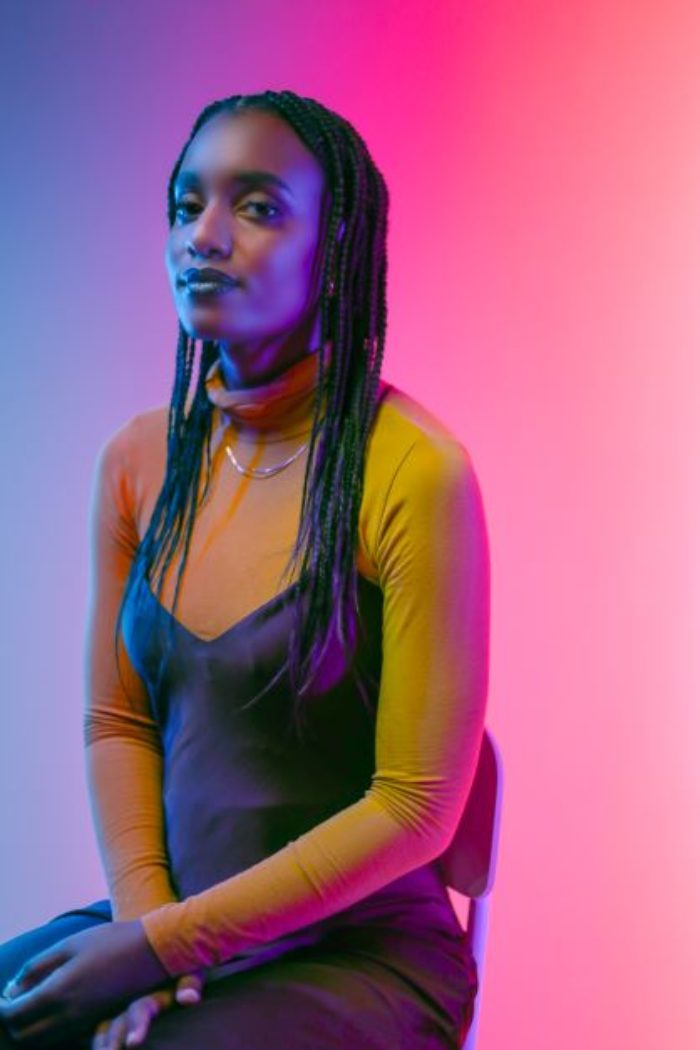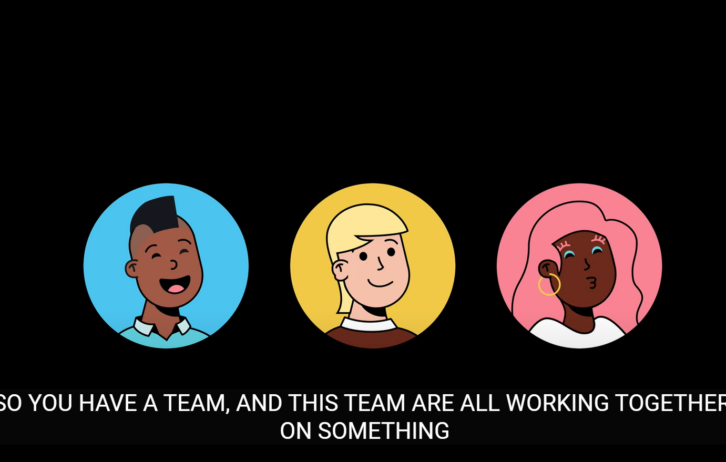International Women’s Day: Naïma Camara
Posted 8 Mar 2022
An interview with tech founder Naïma Camara, creator of Ownership.
Once a senior policy and research manager for Digital Catapult, inspired by the talent in the UK startup ecosystem, Naïma Camara developed Ownership, an AI-based app to help innovators move from the idea phase to company formation.
With its smart company concept, Ownership introduces a new way to recognise and reward the contribution of its founders by assigning value to individuals based on money invested, seniority and hours worked.
Naïma spoke to Digital Catapult shortly after returning from New York, where her company was one of twelve technology firms selected for the UK Black Tech Founders Mission, organised by the UK Department for International Trade and the British Consulate-General in New York.
March 8 is International Women’s Day, created to celebrate women’s achievements and promote a gender-equal world. The theme for 2022 is #BreaktheBias and Digital Catapult talked to Naïma about cultivating gender equality and diversity in the technology sector.
Tell us about your role at Digital Catapult and how it shaped your career path in technology.
I started at Digital Catapult as an intern, writing a policy report on data protection and Brexit and how that impacted emerging technologies.
At the time, I saw my role at Digital Catapult as a stepping stone to do more policy work. I didn’t anticipate being more interested in the tech side, but I became fascinated by how technology impacted innovation and the opportunities within AI and IoT.
After the report was complete, I stayed at Digital Catapult for nearly three years. My first role was as a research assistant, helping with VR and AR research, then I later became senior policy and research manager.
Where did you find inspiration for Ownership?
After Digital Catapult, I went to International Data Corporation (IDC) as an analyst, building up research around startups in Europe, but I started to feel like I was on the outside looking in on the exciting opportunities in the startup world.
At Ownership, we target anyone in the early stages of forming a business. Digital Catapult gave me access to this world to meet founders and was part of the inspiration for this app. It’s also where I met my co-founder and we learnt about the problem we are solving first-hand.
Joining Digital Catapult made me realise that being a founder is more about resilience, showing up every day and navigating the challenges and the ups and downs of starting a business.
What are the major challenges you face as a founder?
The main challenges are fundraising. When you look at the data and investment into women, particularly black women, it’s negligible at best. Only 0.02% of funding goes to black women in the UK. There are even fewer black women who have accessed later stage funding. There have been many initiatives to increase access to funding, but we still have a long way to go.
Even if those challenges are still very real for me, I’m lucky because I had a network and was already in tech when I started. So, I knew about the startup ecosystem, grants, Innovate UK, how equity fundraising worked and what a pre-seed round was. I don’t know what I would do without that visibility.
You have just returned from the UK Black Tech Founders Mission in New York. Can you tell us about that?
The mission took 12 black-led founders and businesses to New York. We gained visibility into the New York startup ecosystem and met with UK founders who had moved to New York and US-based black founders, as well as key decision makers in the venture capitalist world.
There was a lot of press, so a big part of that was visibility for us – we were really elevated on a global stage. The US is a huge market and they are increasingly looking for founders worldwide, realising there is no limit to the amount of talent and great ideas outside the US.

What steps can the UK technology sector take to promote a diverse and inclusive culture?
It’s improving, but it’s not where it needs to be. You cannot underestimate the visual representation and impact of seeing women in leadership positions at all levels, from early-stage startups to Fortune 500 companies. Yet, we still don’t see the statistics we need to have impactful change. At the venture capitalist level, we need more diverse people who actually write the cheques.
Also, people hire who they’re used to seeing. It’s the same with investment; you invest in people you identify with, people you’re used to seeing in those roles. It’s a shame that we’re not getting enough diverse talent in the door.
You cannot underestimate the visual representation and impact of seeing women in leadership positions at all levels, from early-stage startups to Fortune 500 companies. Yet, we still don’t see the statistics we need to have impactful change.
Naïma Camara Creator of Ownership and former Digital Catapult employee
How can we inspire young girls and women to pursue a career in technology?
In the UK, there is a lack of understanding of the opportunities presented in tech, which does us a disservice for attracting top talent. Some of that is down to a lack of education and schools need to do more. For me, tech was never mentioned as a potential career.
One of the great things about tech is that you don’t necessarily need a degree or a masters. A lot of it can be self-taught, but it’s about knowing what opportunities are open to you. We need more initiatives like General Assembly and organisations that help to upskill or reskill women in tech.
In recognition of International Women’s Day, what would your message be to aspiring female entrepreneurs?
If you have an idea that you’ve been putting on the back burner, because you’re not sure, you’ve got too many questions or you don’t think it’s the right time, just start. Because that idea will not be the idea you end up working on in three or six months; it’s about showing up every day and doing a few hours here and there. Then slowly, the work you put in accumulates to become something tangible – something that you’ve worked towards.
Also, having a network of female founders to support me along the way has been a great help. You can learn so much from people at the same level as you. Just having a WhatsApp group chat, where you can share the wins and the lows, can help keep you going.
